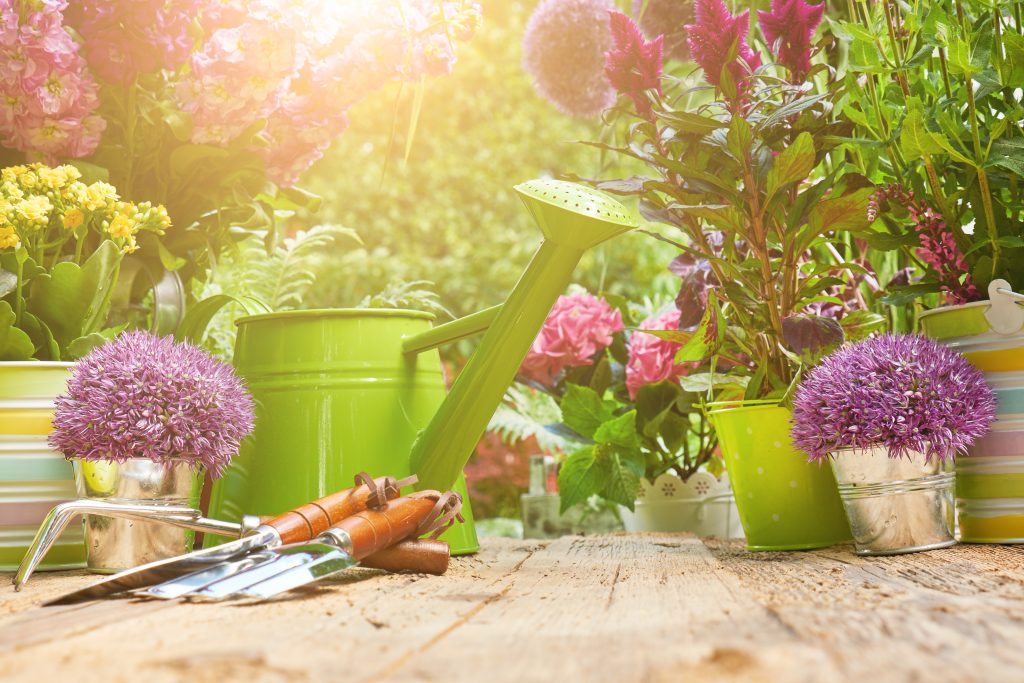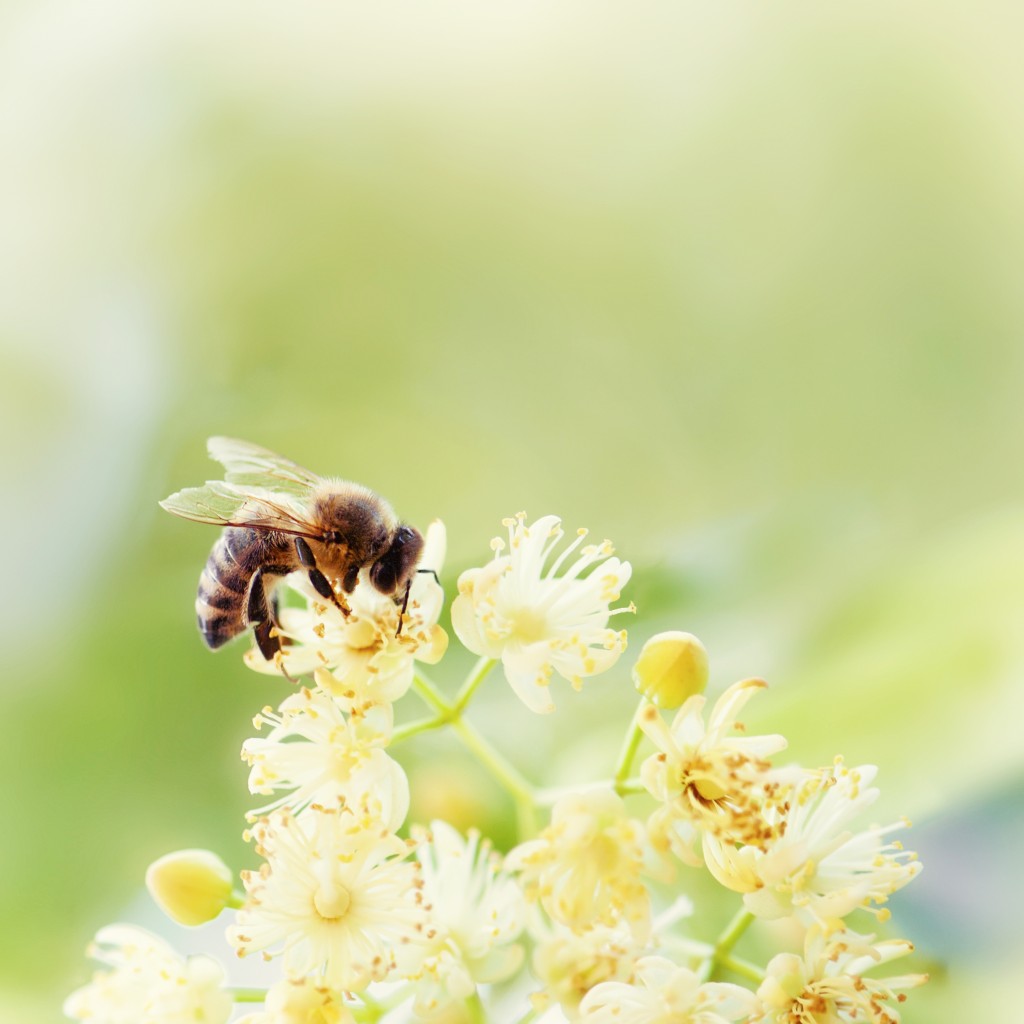We don’t usually think of insects as playing an important role in our lives; they are more likely to be viewed as pesky, annoying vermin. But several insect species play a vital role in our ecosystem. Bees alone are responsible for pollinating 80% of flowering plant species, and thus are a significant contributor to agricultural production.
Pollinating insects go about their jobs each day, mostly invisible and under-appreciated. Many of our daily practices may even be harmful to these valuable insects. Here’s what you can do to make your garden more pollinator-friendly.
Organic maintenance
Many homeowners find that spraying a herbicide or pesticide is the easy way to get rid of undesirable weeds or insects. Yet the chemicals sold for consumer use often don’t have the specific effectiveness of solutions used by professional beekeepers for treating Varroa mites, for instance. The liberal use of non-targeted pesticides and herbicides can easily spread harmful effects among species which would otherwise be beneficial to your garden, especially pollinators.
Reduce your reliance on such harmful solutions. If necessary, make sure you read the label and follow instructions properly. Also, you can rely more on the organic maintenance principle of encouraging natural pest control in the form of other insect species, such as ladybugs, dragonflies, praying mantises and wasps. These are predators of other insects. Even in small numbers, they will effectively keep the spread of vermin in check.
Grow wild and native
Perhaps due to cultural influences, we tend to envision an ideal garden as having well-trimmed grass and a few varieties of our favourite flowers to create a perfectly controlled display. It’s a beautiful sight for humans to behold but is less attractive to pollinators and makes for a poorly balanced ecosystem.
Letting your garden grow wild and allowing native plants to thrive will make it more attractive to pollinators while lowering maintenance costs, as well. Native species evolved to become specifically well-adapted to the local conditions, often developing mutualistic relationships with native pollinators, which makes them a sought-after source of nectar and pollen. Mowing less will also let the grass provide better cover for various insect species. You can set aside parts of the garden for controlled maintenance and cultivation, leaving the rest to be a little unkempt and more pollinator-friendly.
 Aim for diversity
Aim for diversity
Humans’ desire to control an environment by growing only a handful of species selected for preferred factors, such as beautiful flowers and foliage or consumable fruits and seeds, can have adverse effects on the ecosystem.
Even on the small scale of a home garden, low diversity can mean a higher risk of disease and loss of soil quality. And for pollinators, it frequently means fewer opportunities to forage. By increasing diversity in your garden, you can grow flowers that bloom at different times of the year, making it a more attractive habitat for pollinators all year round. As mentioned, making your garden more welcoming to native plants and a variety of insect species will improve diversity while providing further benefits.
Pollinators play a significant role in ensuring the local ecosystem continues to thrive by facilitating the proliferation of various flowering plants. Cut back a little on the unnecessary intervention and rethink the way you conceive of a beautiful garden. In turn, you can create a space of natural beauty both you and the pollinators can appreciate.

